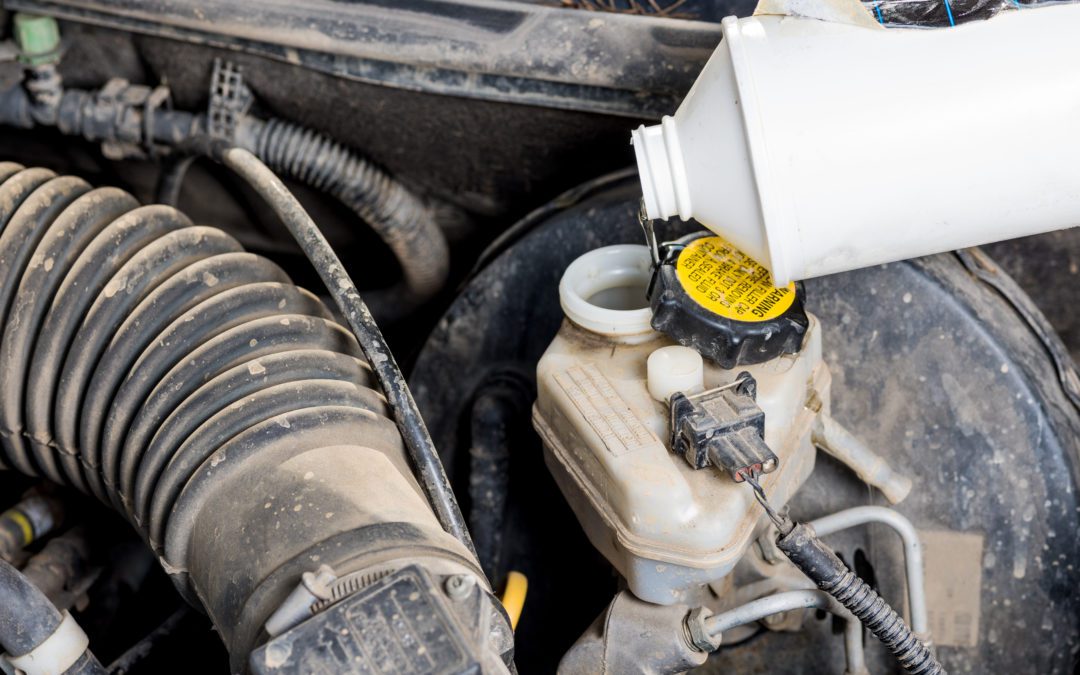There are quite a few complexities surrounding how to dispose of brake fluid. Of course you want to avoid excessive fines, penalties and any sort of trouble with local, state or federal authorities.
So let’s clear up some of those complex issues now.
In the first place, can I minimize my risk of accumulating brake fluid?
Absolutely. When shopping, buy brake fluid in 8-ounce bottles instead of quarts. Right away, you have already cut down on the possibilities of having excess product going bad.
Is brake fluid toxic?
It is toxic when ingested. So please, please, please keep this product away from pets and children. It is alcohol based.
Can I pour old brake fluid down the drain?
No. Absolutely not. Brake fluid should never be poured into a sink, storm drain, septic tank or on the ground. Old brake fluid removed from cars is considered hazardous waste and it must be taken to a treatment facility for proper and legal brake fluid disposal.
Since accidents do happen, what should I do if brake fluid spills?
Assuming it is a small amount that has spilled, a good way to dispose of brake fluid is to clean it all up with kitty litter. Then place the soiled kitty litter in a pan and just leave it alone for a few days, allowing the alcohol to evaporate. Then, assuming the kitty litter is completely dry, the kitty litter can be taken to a household-hazardous waste facility or you can simply put it in the trash.
To save on money and to save me the possibility of having excess brake fluid to dispose, can I remix old brake fluid with new brake fluid?
No. The major problem with doing so would be the brake fluid which never comes back and stays in the lines will absorb water over a period of time. Then the water will cause corrosion on the steel brake lines. Stay away from mixing. It’s always good to save money when you can with regard to automobiles, but this is one area where it best to worry about safety before saving a few bucks.
The less I change it, the less likely I am to have dispose of brake fluid. So, how often should I change my brake fluid?
There is no set timetable for this. The frequency which brake fluid needs changing totally varies based on the make, model and year of your vehicle, among other factors. A good rule to stick by is to always check the brake fluid during every oil change. Keep in mind that it’s reasonable to expect a change in the brake fluid will be necessary after four years. Plenty of people choose to change their brake fluid every two years and that’s not a bad idea either.
Will I receive money when I take my brake fluid to recycling centers?
Sometimes yes, sometimes no. Of course you want a fine stack of green bills in return for your efforts. But sometimes the main issue is just to wipe your hands of the product itself and be done with things — and if that means you leave without cash, perhaps you’ll be OK with that. Check around. Like we said, sometimes you’ll find a center that pays, and plenty will not pay. Please take note of this whether you are paid or not: By recycling your brake fluid, you are helping out the environment.
Can I flush the brake fluid down a toilet?
No, no, no. Please remember brake fluid is flammable and should never be poured down the toilet. If the brake fluid is unused and expired, you can dispose of it by letting it evaporate from a pan of kitty litter.
Will auto supply stores take brake fluid waste?
Some auto supply stores do offer used brake fluid disposal. Auto supply stores are in business to make a profit and the more people that visit them — for whatever reason that visit may be — the better shot they have at making a profit. Call around. You have nothing to lose.
Why is there so much conflicting information out there regarding how to safely dispose of brake fluid? Can’t this be done rather easily?
Why so much information out there? In today’s complex world, with everyone and their uncle giving advice on waste disposal, brake fluid disposal and everything else, there is bound to be some disinformation. But, yes, this can all be handled relatively simply and within three or four days. Number 1, fill a large tray or metal pan with about a half-inch of kitty litter. Number 2, pour that brake fluid over the kitty litter. Number 3, leave this all uncovered for three or four days. Number 4, you should be free to handle the disposal in your regular trash.
Should you have any more questions, please call HazChem Environmental at 630-458-1910

